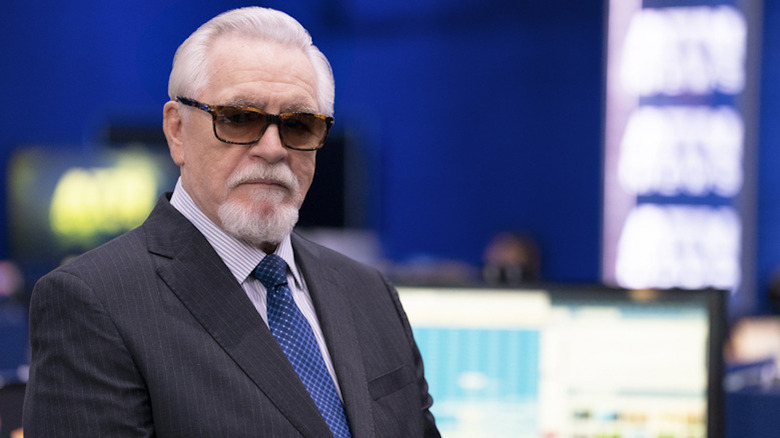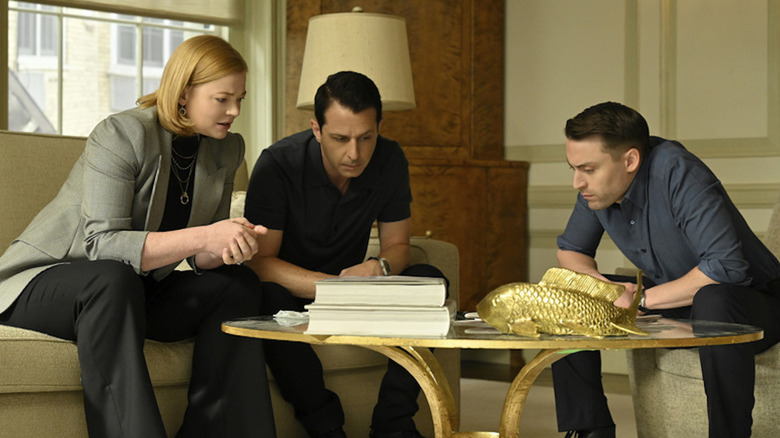Succession's Showrunner Started Mentally Crafting The Finale Back In Season 2
In creative terms, episodic television is inescapably a writer's medium. Even in the hands of a visual auteur like David Lynch (and, yes, "Twin Peaks: The Return" was a television show, not a movie), a series' chief responsibility is to compel the viewer to come back for more. It's novelistic in form, which may be why some of the greatest series of the Peak TV era — "The Sopranos," "Breaking Bad" and "Mad Men" — climax in their penultimate episode, and end with an hour-long denouement.
Those series also sprawled. "Breaking Bad" was the shortest with five seasons, but it didn't really find its footing until season 2. Jesse Armstrong's "Succession," however, hit the ground flouncing with its first episode. It has always been a tightly focused, unrepentantly mean-spirited examination of a corroded family. It may be redundant at times (an unavoidable hazard given the characters' inherent corruption; these people were only ever awful), but the narrative never felt constructed for a ratings-enhanced long haul. The perpetual ill-health of media magnate Logan Roy (Brian Cox) was a storm cloud that hung over every episode. He wasn't long for this world, and once he kicked, the series would speed toward its endgame. Which of his hilariously unprincipled children would claim his throne?
So it's a little surprising to learn that Armstrong didn't launch "Succession" with a clear end in sight — though it didn't take him long to figure out his finishing move.
The Roys might be built to last, but our tolerance for them is not
When asked by The New Yorker's Rebecca Mead when he hit upon the proper finale for "Succession," Armstrong revealed that it took him a season to get there.
"[I] think, growing from about season 2, I started to know where I thought it should end. I don't keep that secret because that's what the writing room is there for: to test the ideas out. The show is an artifice — you are making up the story. And yet there are certain ideas which feel organic and some which feel inorganic, and I guess the writing-room process for me is a great way of making a piece of artifice feel organic to us, and to myself."
I'm just thrilled to hear that he considered an end early in the process. Way too many dramatic series accordion out because they're too valuable to the network or streamer (or the producers). By the end of the third season, I didn't know how much more of the Roy family's conniving I could take.
A portrait of dead-hearted greed
"Succession" is a pitch-black comedic tragedy, and the Roys are not characters with long arcs. So it was a relief to enter the fourth season knowing that this would be it. Killing off Logan midway through was a brilliant decision (loaded with tension because I spent most of the hour expecting the old bastard to cheat death yet again). It reminded viewers that we do not have a rooting interest.
The Roys are the scheming scumbags who plot your everyday misery. It's caustically funny to watch them profess familial love and betray each other in the same breath, but the point of Armstrong's show is that this is who we'd be if born into wealth. F. Scott Fitzgerald was correct when he observed the rich are different from you and me, but the rest of his statement was bunk. They are not soft where we are hard. It may take them time to calcify, but they will eventually be stone. And we shall suffer for their empty ambition.


